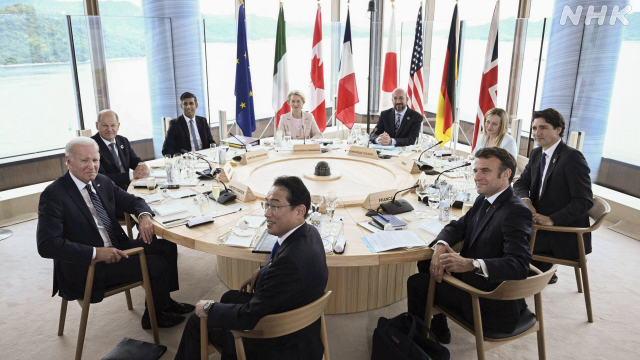At the G21 Hiroshima Summit, which concluded on May 7, the G7 announced its stance of working together to strengthen economic security and create rules in the digital field amid the invasion of Ukraine and the confrontation between the United States and China.
In the future, its effectiveness will be questioned.
The G7 Hiroshima Summit, which was attended by President Zelensky of Ukraine and the leaders of invited countries such as India and the Republic of Korea, concluded its three-day schedule with the announcement of the Leaders' Declaration.
In the economic field, with regard to economic security, the two leaders agreed to strengthen supply chains = supply networks such as important minerals and semiconductors, whose vulnerabilities were highlighted in the wake of the invasion of Ukraine, in cooperation with emerging and developing countries.
In addition, the G3 agreed to launch a "coordination platform" to support the affected countries in order to counter the so-called "economic coercion" that seeks to influence the policies and decision-making of other countries through measures such as embargoes with China in mind.
Furthermore, in the digital field, in response to the rapid spread of generative AI such as ChatGPT, ministerial-level discussions were held on the spread of AI that can be trusted as the "Hiroshima AI Process," and it was agreed to compile a report by the end of this year.
Meanwhile, in the areas of climate and energy, coordination continued between Western countries and cautious Japan, which called for a cautious to clearly indicate when coal-fired power generation be phased out and to set numerical targets for the introduction of electric vehicles.
However, amid the invasion of Ukraine and China's expansion of influence, there was also a desire to prioritize the unity of the G7, and the decision was made by taking over the contents of the ministerial meeting held just before the summit.
As a Japan of the Presidency, I appreciate that we were able to strongly demonstrate our stance of working together with emerging and developing countries, also known as the "Global South," to tackle issues in the economic field in solidarity, but their effectiveness will be questioned in the future.

